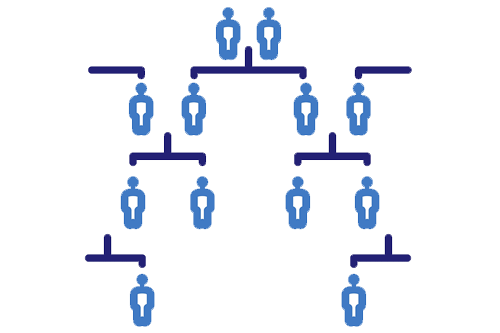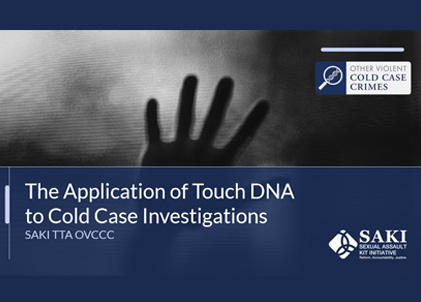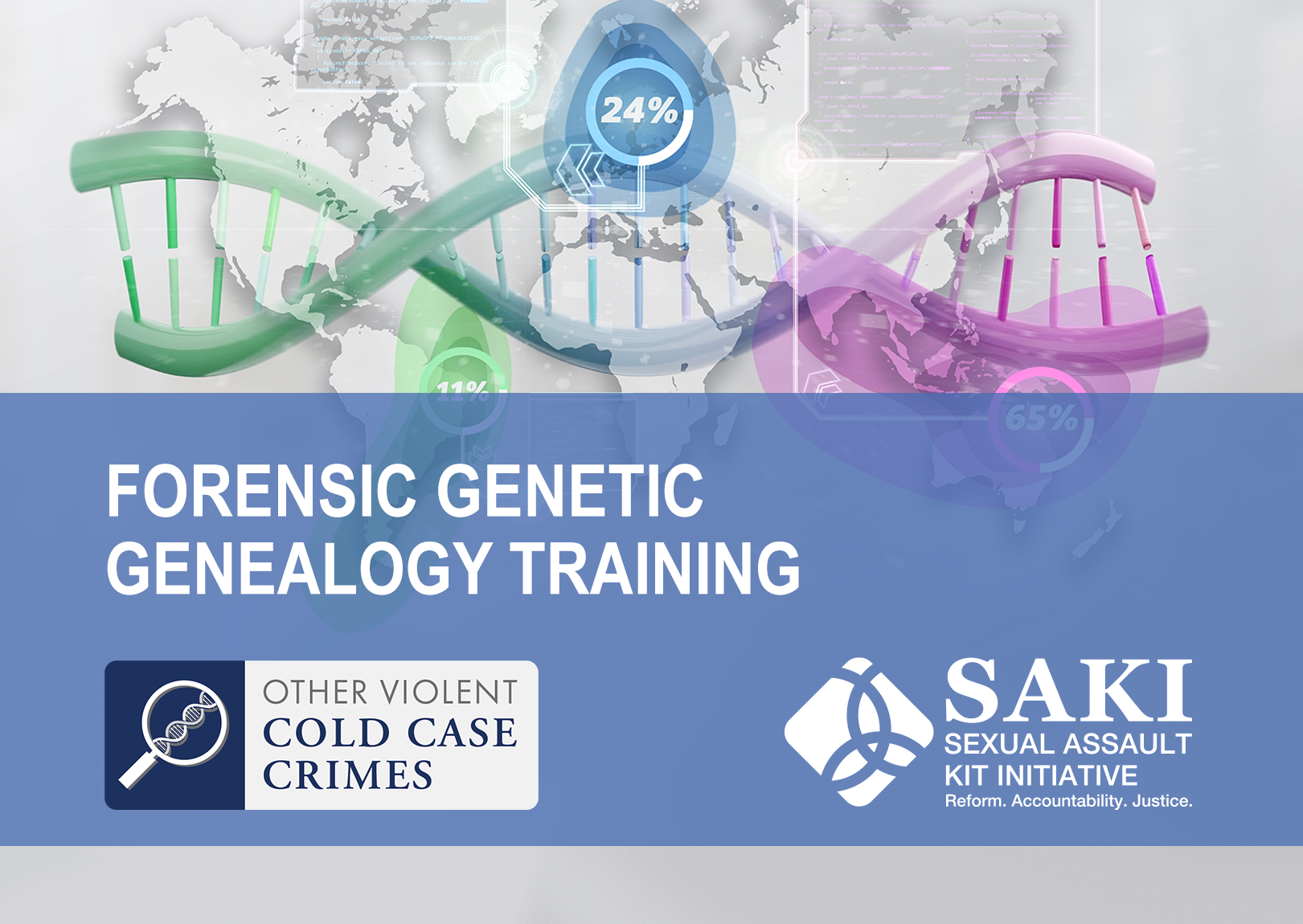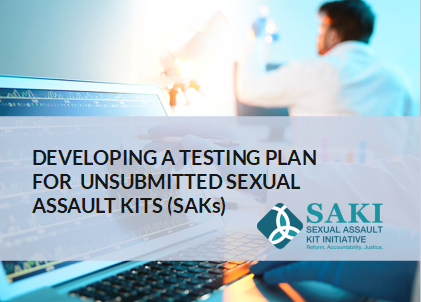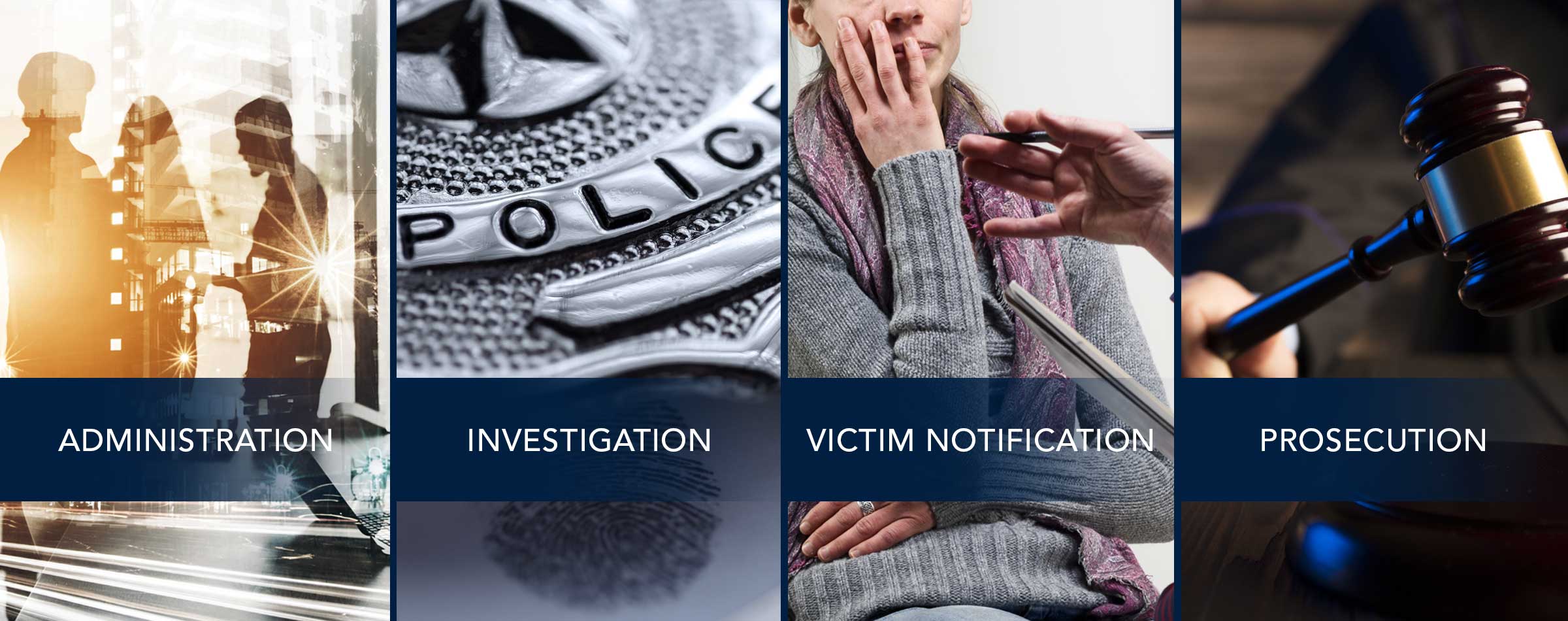Available courses
SAKI TTA, on behalf of the Bureau of Justice Assistance (BJA), is hosting a series of in-person courses on Investigative Genetic Genealogy (IGG) as outlined below.
- April 28-May 2 | Rancho Cordova, CA
- July 7-11 | Research Triangle Park, NC
- August 18-22 | Research Triangle Park, NC
Each training provides a hands-on opportunity for agencies with BJA forensic portfolio funding to engage in practical exercises focused on constructing and analyzing family trees. Upon completing the course, participants will be able to access a certificate of completion.
- Teacher: Amanda Young
Learn about the National Sexual Assault Kit Initiative (SAKI) and the top five reasons it is important to submit unsubmitted sexual assault kits (SAKs) for testing.
This brief video will introduce you to the SAKI Virtual Academy and the valuable online courses that are available to you.
Please click the video title above to access the video.
This training provides law enforcement investigators and other criminal justice partners involved in a cold case multidisciplinary team with a basic understanding of how touch DNA analysis can aid in attaining cold case resolutions. This training aims to equip cold case investigators with a foundational knowledge of touch DNA that will aid making informed decisions regarding evidence selection and submission for touch DNA analysis.
Please click the curriculum title to access the modules.
This training provides an opportunity for jurisdictions to learn best practices and identify approaches to common challenges to further the successful implementation of Forensic Genetic Genealogy (FGG) into their investigative workflows.
Developing a testing plan for unsubmitted sexual assault kits (SAKs) is a critical step in the legal process. This curriculum presents three modules that review the key sections of a testing plan, which disciplines should be involved in plan development, and the different methods for testing SAK submissions.
Please click the curriculum title to access the modules.
Prosecutors have unique considerations when working cold case sexual assaults. In this course, you will focus on working with victims and understanding past trauma and potential re-traumatization through a cold case’s renewed investigation. You will also explore key strategies for prosecutors to proactively address common evidentiary challenges of cold case sexual assaults.
Please click the curriculum title to access the modules.
A Victim Notification Protocol is essential to cold case sexual assault investigation and victim healing.
This curriculum offers six modules that present information and resources to help jurisdictions develop and implement a Victim Notification Protocol. These modules focus on using a victim-centered, trauma-informed approach to victim engagement. The modules review information on the key sections that should be included in a protocol, which professionals to involve in protocol development, and steps for executing the protocol in the field.
Please click the curriculum title above to access the modules.
Discover SAKI’s promising practices for investigating cold case sexual assaults. This curriculum presents five modules that review how to establish your new case file; apply a victim-centered, trauma-informed approach to case review; engage a multidisciplinary team in case assessment; and remain aware of and avoid inherent biases. The curriculum also covers some basic steps and questions for developing an investigation checklist or plan for your cold case.
Please click the curriculum title to access the modules.
You have the SAK testing results—so what do you do now? This curriculum presents four modules that review general information on DNA profiles, SAK testing results, and CODIS, as well as specific steps for conducting investigative follow up of cold case sexual assaults once testing results are received. In the past, specific challenges may have led jurisdictions to underestimate the importance of testing SAKs or the need for a thorough investigation of these cases. This curriculum outlines steps investigators can take for each type of SAK testing result (i.e., No DNA, No Hit, Forensic Hit, and Offender Hit).
Please click the curriculum title to access the modules.
The Bureau of Justice Assistance (BJA) and the National Sexual Assault Kit Initiative Training and Technical Assistance (SAKI TTA) Team welcomed attendees to the 9th Annual National Sexual Assault Kit Initiative (SAKI) Grantees Meeting in Denver, CO on October 28-30, 2024. This is a closed course if you wish to be granted access please email sakitta@rti.org.

